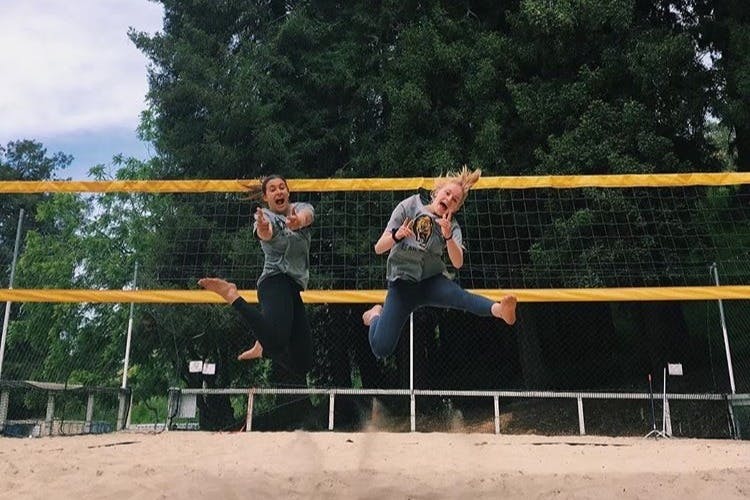RYC Roots
OUR ROOTS
Our Roots
Mackenzie Feldman and Bridget Gustafson co-founded what began as Herbicide-Free Campus at University of California, Berkeley in 2017.

What inspired them to start this movement?
They showed up for beach volleyball practice one day to their coaches' cautions: If the ball rolled off the court, don’t chase it. Bridget and Mackenzie (pictured left) were shocked to learn that the area surrounding their court had been sprayed with Ranger Pro, a glyphosate-based product that is a risk to public and environmental health.
So, what did they do?
Bridget and Mackenzie asked the Supervisor of Athletics Fields & Turf to end spraying by the courts, and in return, the team would pick the surrounding weeds. Since that day, Bridget and Mackenzie have made lasting, institutional change. The campaign spread across campus, and now UC Berkeley is 95% organic.
Mackenzie and Bridget were inspired to expand the campaign in 2018 after Dewayne “Lee” Johnson, a groundskeeper who developed cancer from spraying the same chemical, sued Monsanto in a groundbreaking trial that set the stage for over 100,000 similar cases.
Beyond UC Berkeley
The two decided that they needed to take this beyond UC Berkeley. Dewayne "Lee" Johnson came on as an advisor and they launched Herbicide-Free Campus, to first inspire the entire UC system, and then campuses across the country, to rethink reliance on toxic herbicides in campus management, and to teach students how to lead this campaign.
Becoming Re:wild Your Campus
In 2022 Herbicide-Free Campus joined Re:wild as a fiscally sponsored project, and rebranded to become Re:wild Your Campus. The movement has now spread coast to coast, driven by students, groundskeepers, and community members passionate about creating safer and healthier school campuses.
So, whats next? Re:wild Your Campus has a goal of seeing every university in the U.S. eliminate synthetic pesticides and fertilizers by 2030, and will continue to empower students until every college campus in the country is ecologically safe. Lee Johnson remains an active advisory board member today, and his story is at the heart of why we do what we do.
